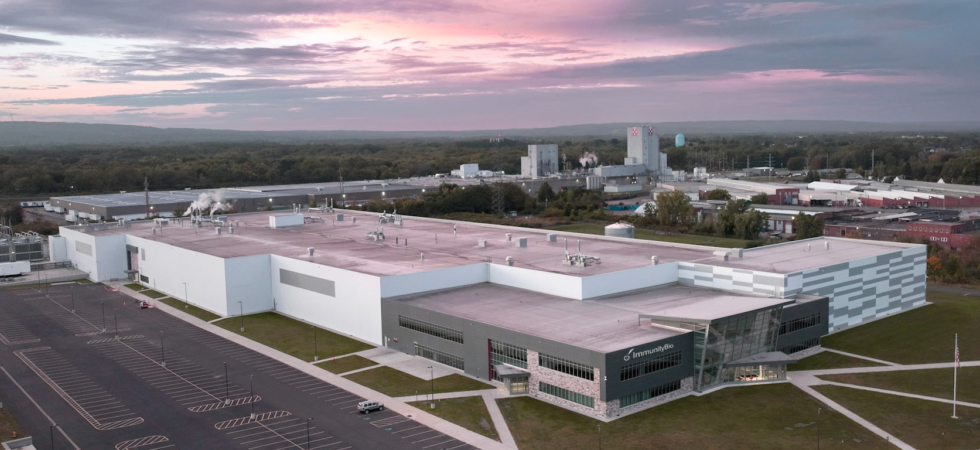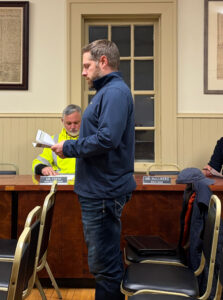Oversized Plants, Entities Run Empty On Promises

Despite hopes for a production facility for ImmunityBio, the town of Dunkirk plant off Route 5 is an empty ghost town.
Standing in front of the Tesla Gigafactory in South Buffalo in the middle of July, a group of activists, lawmakers and concerned citizens had a bone to pick with New York state. In their eyes, the company led by billionaire Elon Musk, has not fulfilled its lofty goals of having a workforce of 5,000 or becoming a major solar roof manufacturer.
In a statement, the Partnership for the Public Good based in Buffalo said mass layoffs at the location have been frequent and job targets have been missed and drastically reduced. “The state of New York has a choice in terms of who it’s going to do business with, and who it’s going to give public money to or subsidies to,” said Sam Magavern, senior policy fellow at Partnership for the Public Good. “Is Tesla really the best choice, given where the company is at right now, and given its track record here at this site?”
There has always been animosity over the $958 million in taxpayer dollars paid by Albany in building the site between 2014 and 2017. Without a doubt, it was a generous subsidy for Musk, the world’s richest individual who is valued to be worth more than $342 billion.
Almost 10 years since construction, the premise appears downright hypocritical. As Musk headed up the Department of Government Efficiency this winter and spring to slash jobs and slice federal departments for President Donald Trump’s administration, his company in Western New York exists thanks to government dole.
Now, the state and Tesla are working on a new deal to extend the company’s lease on the site from 2029 to 2034. While increasing Tesla’s rent — previously $1 per year, the proposal decreases job-number requirements and reduces the penalties for not meeting expectations tied to the workforce.
Here’s where it gets dicey. Tesla’s operations employ 2,000 workers in the plant at the moment, according to The Buffalo News. The Partnership for the Public Good believes the state should issue a new Request for Proposals for the current site.
“New York’s Tesla boondoggle is an object lesson in the risks of focusing economic development plans on giveaways to billionaires and politically connected corporations,” said Robert Galbraith, Senior Research Analyst Public Accountability Initiative/LittleSis.org.
“To date there has been little to no accountability for Tesla’s failure to meet its meager goals and now we stand at a crossroads in addressing the crises of runaway carbon pollution, cost of living, and inequality.”
If the Western New York group is upset at the way Tesla is operating — even below the standards set during the Buffalo Billions effort by former Gov. Andrew Cuomo — imagine the outrage they would have regarding the 400,000-square-foot $200 million facility that was built for the now defunct pharmaceutical company Athenex in the town of Dunkirk. Purchased by ImmunityBio in February 2022, the facility’s interior is reported to have been poorly constructed and the empty behemoth stands as a testament to the desperation to rebuild a region’s economy.
Despite plenty of fanfare tied to the 2016 announcement that was made by Cuomo at Dunkirk High School, progress at the location remains at a standstill. There was hope more than one year ago that ImmunityBio would be using the site to produce a bladder-cancer fighting drug Anktiva at the plant just east of the city’s border off Route 5.
But the timeline keeps getting pushed back. An email from the OBSERVER and The Post-Journal sent to ImmunityBio regarding the status of the operation did not receive a response this week.
None of these delays are a reflection on local leadership. But the lack of progress is an indictment of the overabundance of municipal entities and school districts that keep squeezing residents for every penny they can get.
Government, through large tax hikes in the city of Dunkirk and village of Fredonia, continues to deliberately penalize property owners and the private sector without one iota of guilt. It is why payments in lieu of taxes and deals like those for Tesla and Athenex are regularly offered to entice major companies to locate here.
Highly respected Wells is investing $425 million in its Dunkirk plant for two significant reasons. First is its dedicated and loyal workforce. Second is the state and county subsidies. Without those tax breaks, the company based in Iowa could have likely looked elsewhere.
Education is part of the punishing equation as well. Take a look at the already overbuilt kingdom of Brocton Central Schools. It is in the process of another major $17 million construction project — funded through tax dollars — at the facility.
For what? An enrollment of 473 that costs $36,072 per student to educate?
Public entities do not contribute to the Chautauqua County economy. They drain it — through consistent high taxes and rising fees.
Residents are right to question the return on investment with risky private-sector deals, including those in Buffalo and Dunkirk. But what about the endless waste of money that continues to be poured into struggling municipalities and schools with seemingly no end in sight?
Here at home, those public-sector entitlements are easily forgiven and often encouraged.
John D’Agostino is editor of The Post-Journal, OBSERVER and Times Observer in Warren, Pa. Send comments to jdagostino@observertoday.com or call 716-487-1111, ext. 253.





